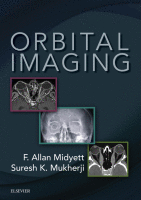Physical Address
304 North Cardinal St.
Dorchester Center, MA 02124

Key points Definition: Isolated metastasis to the optic nerve is rare and is often overlooked or misdiagnosed initially. Classic clue: Typically, a middle-aged female presents with “a little blurred vision,” further inquiry identifies pain, proptosis, reduced visual acuity, and bitemporal…

Key points Definition: Leukemia presenting as an orbital mass portends a more serious prognosis as these patients continue to show significantly lower survival rates than other leukemia patients. Synonym: A subset of orbital leukemia includes: granulocytic sarcoma, chloroma, or myeloid…

Key points Definition: Retinoblastoma (RB) is a rapidly developing intraocular cancer arising from immature retinal cells. Classic clue: A calcified posterior globe mass in an infant or young child is an RB until proved otherwise. RB is the most common…

Key points Definition : Ocular melanoma is the most common intraocular malignancy in adults. Synonyms : Orbital melanoma, uveal melanoma, choroidal melanoma. Classic clue: A “collar button” enhancing intraocular mass in adults. Computed tomography (CT) shows: Ocular melanoma is hyperdense.…

Key points Definition: Ocular adnexal lymphoma (OAL) is one of the most common orbital tumors in adults, accounting for 50% of orbital malignancies. Synonym: Orbital lymphoma (OL). Classic clue: An older patient presenting with an orbital mass causing progressive exophthalmos,…

Key points Definition: Usually found in middle-aged adults, orbital schwannomas (OS) are well-defined, encapsulated, slowly growing benign tumors arising from peripheral nerve Schwann cells, and comprise 1% to 2% of orbital tumors. Classic clue: Middle-aged patient presenting with optic neuropathy,…

Key points Definition: Orbital lipomas (OL) are very rare tumors that are usually benign, accounting for less than 1% of orbital tumors. Classic clue: The patient presents with a well-circumscribed homogeneous orbital mass with low attenuation approximating orbital fat, having…

Key points Definition: Dermoids originate from totipotential germ cells. Present at birth, these differentiate abnormally, developing characteristics of mature dermal cells. Synonym: Orbital dermoids, retrobulbar orbital dermoids, or deep dermoids. Classic clue: Well-circumscribed encapsulated mass with low Hounsfield numbers, filled…

Key points Definition: Optic nerve meningioma (ONM) is a rare, benign tumor arising from arachnoid cap cells in meninges covering the optic nerve (ON). Synonym: Optic nerve sheath meningioma (ONSM). Classic Clue: Appears as an enhancing mass surrounding the nonenhancing…

Key points Definition: Optic nerve glioma (ONG) is a type of juvenile pilocytic astrocytoma (grade 1 astrocytoma) that occurs more commonly in children and young adults. Synonym: Optic pathway glioma (OPG). Classic clue: Sausage-shaped diffuse fusiform enlargement and “kinking” of…